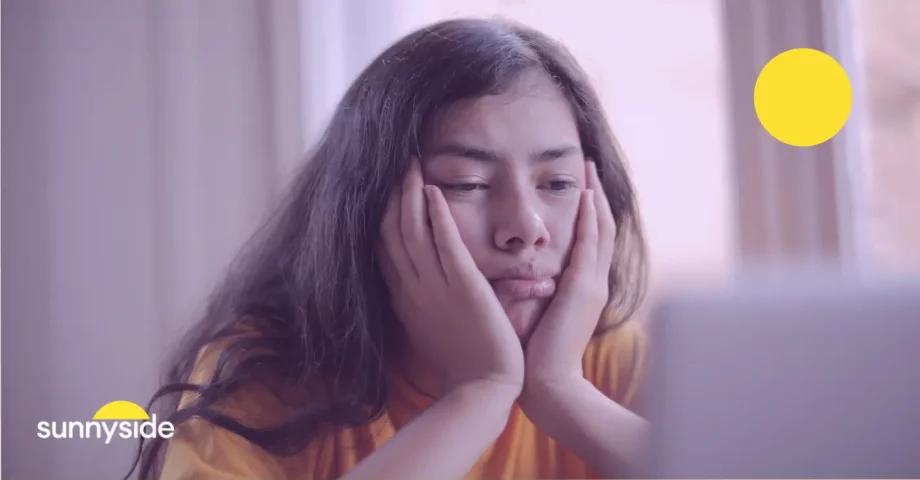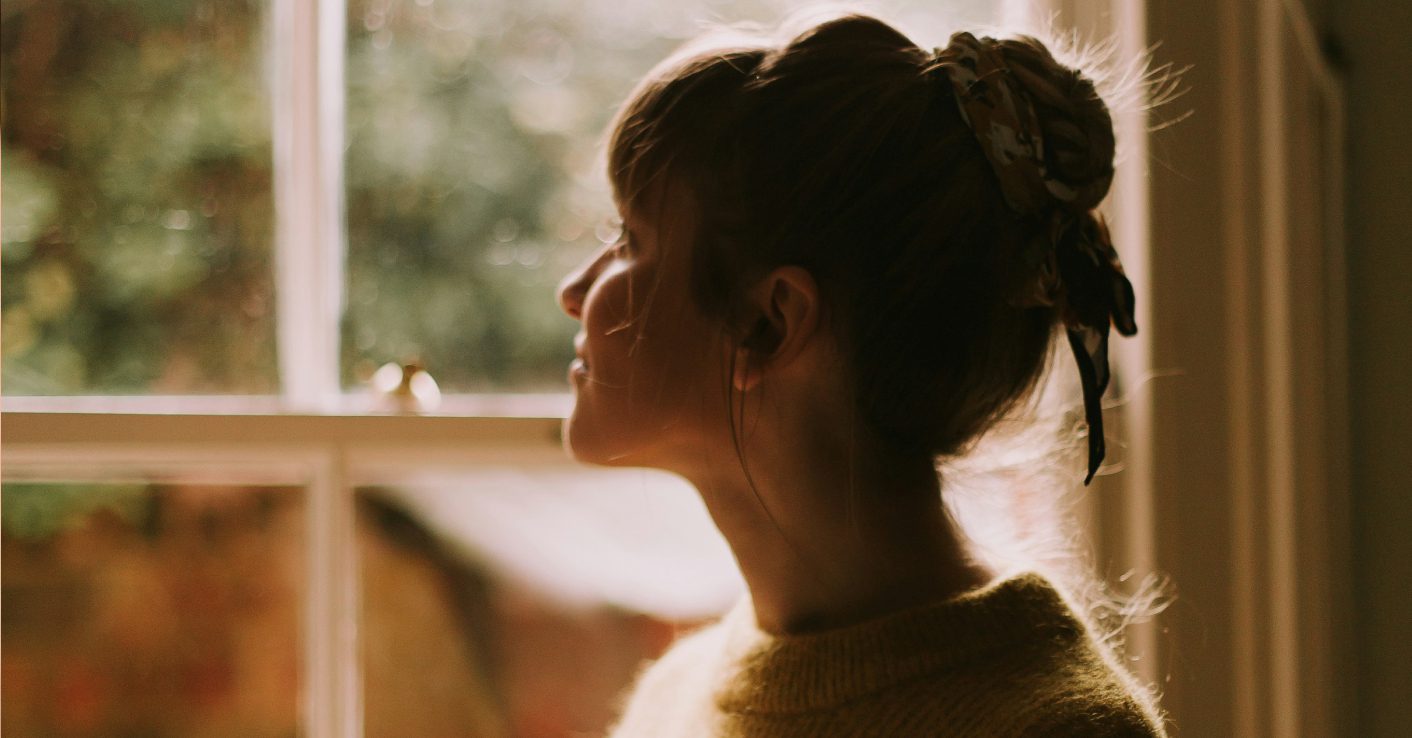Last Updated on November 14, 2023
Everyone gets bored. The solution is some form of stimulation, which can be healthy or potentially unhealthy.
Do you walk around the block and phone a friend? That’s healthy. Or walk to the refrigerator and grab a beer? Potentially unhealthy.
If your dose of stimulation is mostly a walk to the fridge, you might be a bored drinker. And while bored drinking isn’t necessarily problematic, it can sneakily become a serious health risk.
In this article, we’ll unpack bored drinking and help you figure out whether boredom is a drinking trigger. Then we’ll show you how to better manage boredom and avoid unhealthy drinking patterns.
What is Bored Drinking?
Bored drinking takes place when people reach for alcohol to kill time, simply because they have nothing else to occupy their minds.
As a drinking trigger, boredom affects more people than you might think. In a 2022 survey of Sunnyside members, 5% said boredom triggered them to drink. The only triggers that ranked higher are unwinding after a long day, habit, relieving stress, and celebrating something important.
Bored drinking isn’t a new phenomenon. But it did become a bigger issue during COVID. With people forced to stay home, the line between work time and down time began to blur. With few other ways to manage boredom, reaching for a drink became more common.
Even when COVID lockdowns ended, we found in the same survey that 17% of respondents who worked from home were more likely to be excessive drinkers. For those who didn’t work from home, only 12% were prone to excessive drinking. Boredom no doubt played a role in this scenario.
Signs You May Be a Bored Drinker
Many bored drinkers likely don’t realize they’re bored drinkers. But if you consume alcohol, these signs might indicate that boredom is a drinking trigger.
1. You often drink when alone.
Being alone doesn’t automatically make a person bored. But if you enjoy alcohol, and boredom suddenly strikes while isolated, reaching for a drink is an easy way to satisfy the need for stimulation.
In our 2021 State of Drinking in the US Study, we learned that a third of surveyed drinkers “are drinking at home by themselves more often.” And with boredom ranking fifth on our list of drinking triggers, it’s not a stretch to blame some of this increase in at-home drinking on boredom.
Sure, having a single drink while alone might not seem like a problem if you eat well and exercise. But if you add it to the drinks you have with friends and that everyday glass of wine with dinner, your total number of weekly drinks can increase rapidly.
Start drinking mindfully2. You’re prone to seasonal affective disorder (SAD).
The winter months often meet a halt to favorite outdoor activities. This shift in routine, coupled with earlier darkness and cold temperatures, can lead to SAD. Once SAD and downtime collide, bored drinking can result.
The American Psychiatric Association estimates “5 percent of adults in the U.S. experience SAD and it typically lasts about 40 percent of the year.”
It’s true that alcohol temporarily boosts serotonin and dopamine levels, which takes the edge off the depression associated with SAD. If drinking starts replacing depression-busting activities like exercise, it will soon take more drinks to enjoy the same high. Depression can get worse.
Bored? Learn how to moderate your cravings.3. You don’t have engaging hobbies.
For many people, an antidote to boredom is picking up their knitting, grabbing a book, or writing in their journal. These healthy diversions fill a gap that drinking might otherwise fill.
Hobbies give you goals, and if you especially enjoy them, you’ll be motivated to reach these goals. Without hobbies, it’s more tempting to take the easier route of having a drink.
4. You rationalize downtime drinking with “I deserve it” or “It’s just easier.”
There are plenty of situations where having a drink is a great way to celebrate an accomplishment. Unfortunately, problems can surface if you use “I deserve it” to justify bored drinking.
Say you have downtime on a Saturday afternoon after a challenging week at work. “Getting through the week” might be your rationale for pouring a glass of wine.
Before you know it, your list of things to celebrate when bored gets longer, and the number of drinks you enjoy each week goes up.
The reality is there are other, healthier ways both to celebrate that milestone and deal with the boredom trigger.
Get your free Sunnyside trialEffects of Bored Drinking
At the moment, bored drinking might not have a negative impact on your work or family life. If you start noticing these side effects, it’s time to re-evaluate how you deal with boredom.
You put off starting a new hobby or working on an existing one.
A sure sign of problematic bored drinking is failing to achieve hobby-related goals.
You might plan to start learning a new language during downtime, but put it off in favor of having a drink. Or you lose interest in an existing hobby because it’s easier to drink.
Hobbies occupy the mind and give you a sense of accomplishment. They improve your overall sense of well-being. Bored drinking might elevate your mood briefly, but it won’t ever match the satisfaction of mastering a hobby.
Your social life suffers.
Moderate alcohol consumption has the potential to enliven social situations. But when you add bored drinks to social drinking, alcohol has the opposite effect.
Say your main drinking occasion is when you socialize with friends. A drink or two while bored might make you too tired or too wary of driving to meet your friends.
If you do manage to meet your friends, the added drinks from socializing might affect your ability to get home, placing a burden on your friends.
Sleep quality declines.
If bored drinking becomes a habit – or if it’s occasional – it can affect your ability to sleep soundly. And if you routinely drink on other occasions too, you’ll experience worse sleep disruptions.
The Handbook of Clinical Neurology doesn’t mince words: “While alcohol is initially sedating, this effect disappears after a few hours, resulting in a fragmented and disturbed sleep in the second half of the night.” [1]
As these nights add up, you’ll wake up with less energy, a clouded mind, and the inability to perform at your best.
It becomes difficult to maintain a target weight.
Bored drinking is a surefire way for sneaky calories to throw off your weight-loss goals.
We know nutritionists consider alcohol’s active ingredient, ethanol, “to be the second most calorie-dense nutrient after fat, at 7 calories per gram.”
Not to mention alcohol also suppresses hormones related to appetite. Even one drink while bored can boost hunger. So when you reach for a snack, you add even more pounds.
Get your free Sunnyside trialHow to Stop Drinking When Bored
Once you recognize that bored drinking is becoming or has become a pattern in your life, you’ve laid the foundation for managing it. Here’s how to do it.
Use cognitive behavioral therapy (CBT) to identify triggers.
If you’re not sure whether boredom is a drinking trigger, keep a running list of when you feel the urge to drink. Then look for patterns. If some urges seem to pop up “for no reason,” it might be because there was nothing else in those moments to occupy your mind. That’s boredom.
If “for no reason” pops up frequently in your list, it might help to seek a CBT professional to understand your why in those situations. The American Psychological Association recommends CBT to root out “faulty or unhelpful ways of thinking” that may be driving unhealthy behaviors.
For example, CBT might help you realize you look at boredom in a negative light. You might believe you should always be doing something useful or constructive, so you reach for a drink to calm the negative emotions boredom creates.
Over time, CBT can help turn boredom into a positive. You might start thinking of boredom as the chance to take a break. And breaks are “useful.” Bestselling author Nir Eyal writes that leisure activities like “exercise or exposure to nature” can “improve your attention and refresh your focus.”
Take the 3 min quizSet goals to work on hobbies.
One of the best ways to deal with bored drinking is to anticipate it — why is not always easy.
Are there certain days where boredom is more likely to sneak in? At the beginning of those days, plan to work on a hobby or some other activity when nothing else is scheduled. You’ll find it easier to settle into the activity should boredom strike.
Say you enjoy cooking. Think of a recipe, and get out all your pots, pans, spices, and nonperishables at the beginning of the day. Now it takes less effort to start cooking when bored, so there’s less incentive to reach for an “easy drink.”
And to stay motivated, take a moment to jot down in a journal how you feel after making progress in your hobby. When boredom strikes and you find it more difficult to muster the motivation to work on your hobby, read these journal entries. That reminder of how good you’ll feel should keep you from heading to the fridge.
Take the 3 min quizReward yourself for not drinking when bored.
As part of your daily “boredom prevention plan,” schedule a reward for not drinking when you otherwise would.
Alcohol is probably not the only indulgence in your life. Once your downtime ends, and you’ve made progress on your hobby or taken a walk, enjoy a piece of chocolate before your next activity.
You’ll get a triple hit of satisfaction:
- The treat
- Meeting your goal of not drinking when bored
- The knowledge you’ve bettered yourself from learning that new word in Spanish or taking a brisk walk.
Practice mindful drinking.
Mindful drinking is key to understanding your why. It means learning to pause when you have the urge to drink and asking yourself these questions:
- Why do I want a drink right now? (Am I bored?)
- What is the health impact of having that drink? (Poor sleep, etc.?)
- What can I do instead of having that drink?
Simply asking these questions might be enough to take the edge off the urge to drink. But if you end up drinking anyway, mindfulness also means forgiving yourself and learning from the experience.
One of the best opportunities to practice mindful drinking is Dry January. While the holidays are indulgent, there’s also plenty of downtime (hint, hint) for learning how to deflect urges to drink.
Take the 3 min quizResist Bored Drinking with Sunnyside
Bored drinking can sneakily become an unhealthy habit, and it’s not always easy to curb it on your own. Sunnyside can help these situations.
Use Sunnyside to track your drinks and better understand the connection between how much you drink and how you feel. Also, if you have that extra drink, Sunnyside lets you interact with others who struggle with bored drinking. You’ll feel empowered to resist the urge next time.
Click here to give Sunnyside a try at no charge. All you need to do is take the quiz.
Take the 3 min quiz[1] Colrain IM, Nicholas CL, Baker FC. Alcohol and the sleeping brain. Handb Clin Neurol. 2014;125:415-31.



